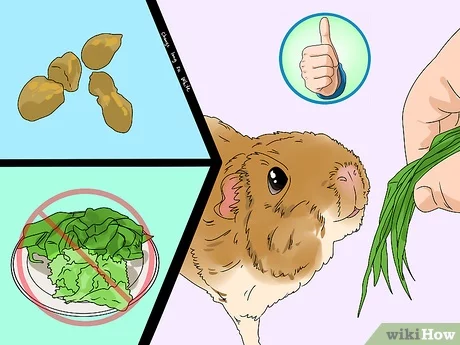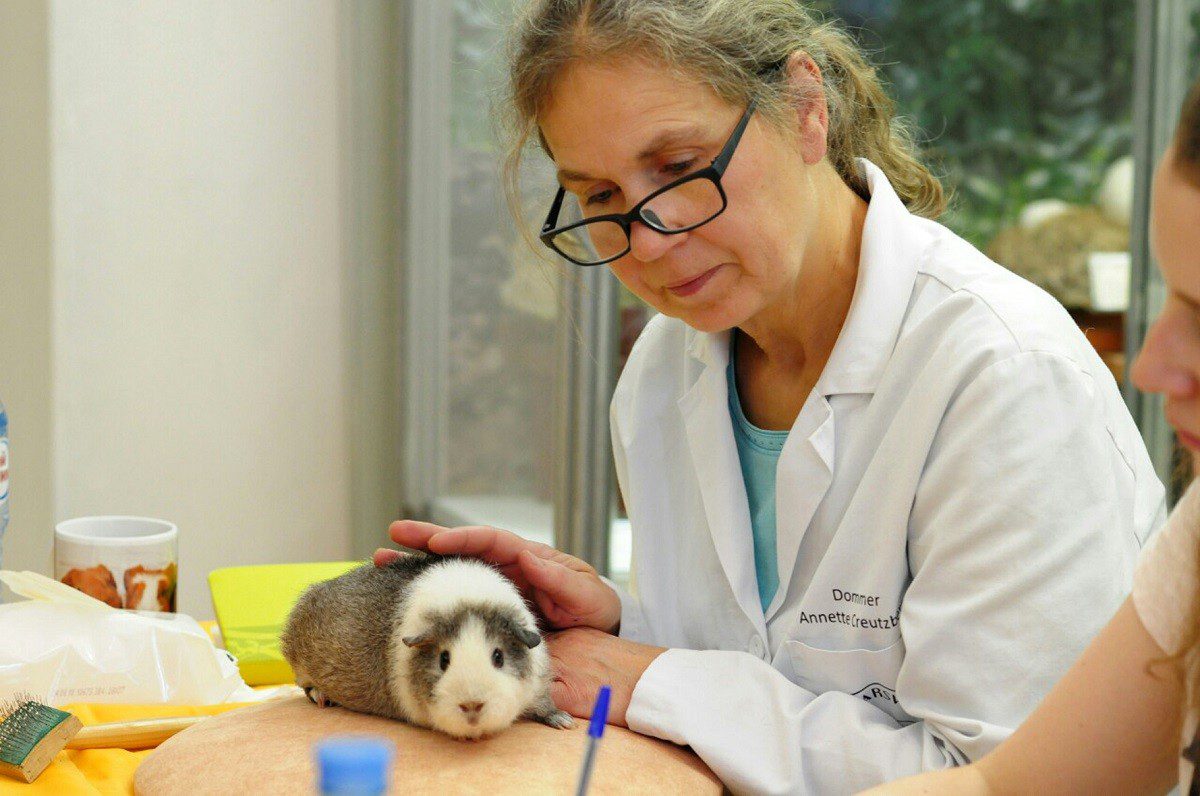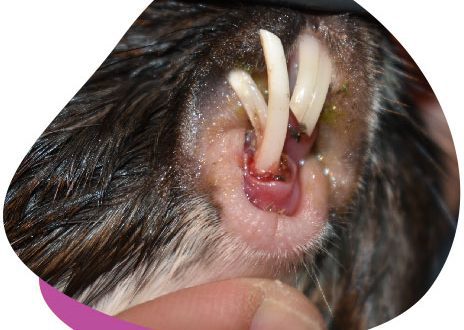
Diarrhea (diarrhea) in guinea pigs
Diarrhea (diarrhea) in a guinea pig – This is one of the symptoms of diseases of the gastrointestinal tract.
Guinea pigs have a sensitive gastrointestinal tract and a very specific natural population of “beneficial” bacteria (flora) necessary for normal bowel function. If the balance of this normal bacterial flora is disturbed, “bad” bacteria can begin to multiply uncontrollably, producing gases as a result of their vital activity, slowing down the process of digestion and the passage of food through the intestinal tract, poisoning the body with toxins, causing severe diarrhea, and in severe cases, death of the animal.
There are many varieties of diseases of the gastrointestinal tract in guinea pigs, but in most cases the following reasons are the basis.
The main causes of digestive problems in guinea pigs are:
- dietary imbalance
- feeding poor quality or unsuitable food
- viral and bacterial infections
- some intestinal parasites (cryptosporidium and coccidia)
- taking antibiotics.
Under dietary imbalance implies a violation of the proportions of feed in the diet of guinea pigs. Since pigs are herbivores, their digestive tract is focused on the digestion of predominantly grassy food. Violation of proportions (lack of grass feed or its small amount in the total amount of food) can lead to an imbalance in the intestinal microflora. Read more about the ratio of different types of food in the diet of a guinea pig in the article “When, how and what to feed guinea pigs”
Poor quality or unsuitable food also often causes stomach upset in guinea pigs. Unfortunately, some breeders are still convinced that the guinea pig is an omnivore, and feed their pets with leftovers from the table, indulge in cookies, sweets and other completely inappropriate products. For information on what foods should not be given to pigs, read the article “What Not to Feed Guinea Pigs”
Viral and bacterial infections often accompanied by diarrhea, but, as a rule, there are other symptoms – runny nose, apathy, refusal to eat, etc. Therefore, it is always important to understand what caused diarrhea in a guinea pig – a violation of the diet or an incipient disease.
Certain antibiotics should never be used to treat guinea pigs as they disturb their normal gastrointestinal bacterial flora and often result in diarrhoea. Antibiotics should only be used as directed by a veterinarian. Never prescribe antibiotics yourself!
Diarrhea (diarrhea) in a guinea pig – This is one of the symptoms of diseases of the gastrointestinal tract.
Guinea pigs have a sensitive gastrointestinal tract and a very specific natural population of “beneficial” bacteria (flora) necessary for normal bowel function. If the balance of this normal bacterial flora is disturbed, “bad” bacteria can begin to multiply uncontrollably, producing gases as a result of their vital activity, slowing down the process of digestion and the passage of food through the intestinal tract, poisoning the body with toxins, causing severe diarrhea, and in severe cases, death of the animal.
There are many varieties of diseases of the gastrointestinal tract in guinea pigs, but in most cases the following reasons are the basis.
The main causes of digestive problems in guinea pigs are:
- dietary imbalance
- feeding poor quality or unsuitable food
- viral and bacterial infections
- some intestinal parasites (cryptosporidium and coccidia)
- taking antibiotics.
Under dietary imbalance implies a violation of the proportions of feed in the diet of guinea pigs. Since pigs are herbivores, their digestive tract is focused on the digestion of predominantly grassy food. Violation of proportions (lack of grass feed or its small amount in the total amount of food) can lead to an imbalance in the intestinal microflora. Read more about the ratio of different types of food in the diet of a guinea pig in the article “When, how and what to feed guinea pigs”
Poor quality or unsuitable food also often causes stomach upset in guinea pigs. Unfortunately, some breeders are still convinced that the guinea pig is an omnivore, and feed their pets with leftovers from the table, indulge in cookies, sweets and other completely inappropriate products. For information on what foods should not be given to pigs, read the article “What Not to Feed Guinea Pigs”
Viral and bacterial infections often accompanied by diarrhea, but, as a rule, there are other symptoms – runny nose, apathy, refusal to eat, etc. Therefore, it is always important to understand what caused diarrhea in a guinea pig – a violation of the diet or an incipient disease.
Certain antibiotics should never be used to treat guinea pigs as they disturb their normal gastrointestinal bacterial flora and often result in diarrhoea. Antibiotics should only be used as directed by a veterinarian. Never prescribe antibiotics yourself!

Treatment of diarrhea (diarrhea) in guinea pigs
Clinical signs that may occur with diarrhea:
- refusal of food
- apathy
- dehydration
- weight loss
- low body temperature.
Guinea pigs with these signs need immediate veterinary advice and supportive care.
Guinea pig diarrhea can range from mild to severe and can be unpleasant and painful for the guinea pig. Mild to moderate diarrhea is treatable with a strict diet (hay and water). Improvements usually occur within 4-5 days. More serious cases deserve a trip to the vet.
In cases where diarrhea is caused by infections, more research is needed. There are frequent cases of infection of guinea pigs with salmonellosis. This disease is characterized by periodic diarrhea and loss of appetite, with an acute course, severe diarrhea develops, which can lead to the death of the animal in a day. Only a veterinarian can make a diagnosis!
Clinical signs that may occur with diarrhea:
- refusal of food
- apathy
- dehydration
- weight loss
- low body temperature.
Guinea pigs with these signs need immediate veterinary advice and supportive care.
Guinea pig diarrhea can range from mild to severe and can be unpleasant and painful for the guinea pig. Mild to moderate diarrhea is treatable with a strict diet (hay and water). Improvements usually occur within 4-5 days. More serious cases deserve a trip to the vet.
In cases where diarrhea is caused by infections, more research is needed. There are frequent cases of infection of guinea pigs with salmonellosis. This disease is characterized by periodic diarrhea and loss of appetite, with an acute course, severe diarrhea develops, which can lead to the death of the animal in a day. Only a veterinarian can make a diagnosis!





